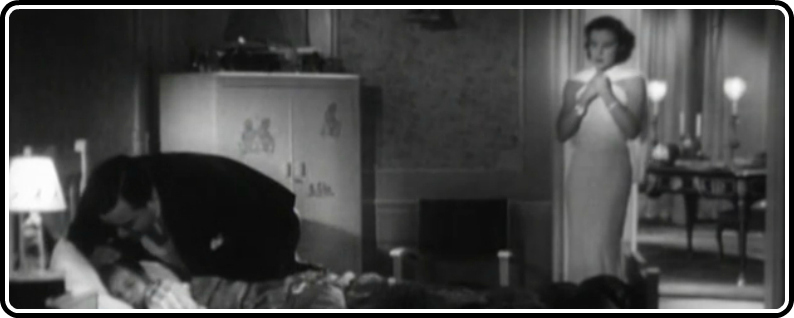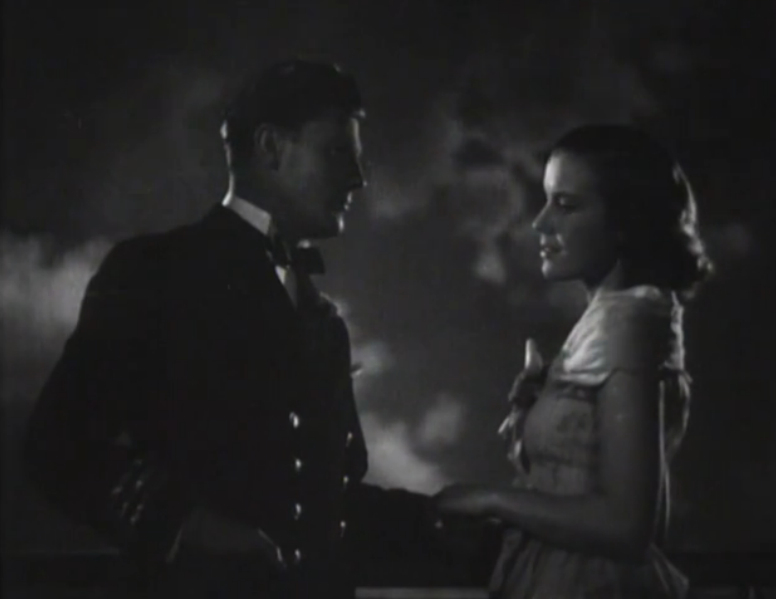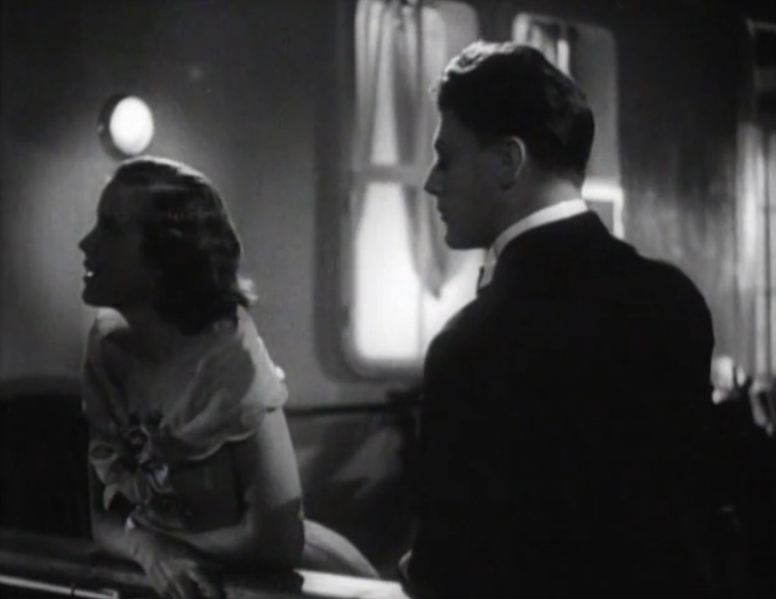
I’ve only begun to dip my toes into the films of Zoltan Korda, but already they’ve proven to be very enriching waters (stick with me here). Born at the end of the 19th century in Hungary, he went into the motion picture industry under the guidance of his brother, Alexander, and followed him from London then onto Hollywood, working together in varying capacities, but never entirely in creative communion. While Alexander was a staunch imperialist, Zorda lent to his films a more liberal stance, striking up friendships with the foreigners he cast (his films were often set in exotic locales) and finding ways to undermine and complicate the more brazen elements of the screenplays with which he worked.
So Forget Me Not, a fairly straightforward English melodrama, is something of an anomaly in his career, but is lent no less of his considerable passion. There isn’t really a plot, per se – this is melodrama; emotions come first – but suffice to say it deals with the dissolution of one romance, and a woman’s attempt to recapture its magic through another person who reminds her of that time. Even in 68 minutes, it’s surprisingly complex both in its emotions and story, spanning well over a year without feeling like it missed a beat.
It’s slight, certainly, but enormously moving. Korda cast his wife, Joan Gardner, in the lead role of Helen, but this is hardly as a favor to her. She and Zorda met because Alexander had discovered her on the stage, and immediately put her to work in his film business. Gardner’s career was short-lived, making only fourteen films inside of six years, but she made the most of that time, working often with Zoltan or Alexander (or both), and playing alongside actors such as Leslie Howard, Conrad Veidt, and Douglas Fairbanks.

If she’s half as magnificent in those films as she is here, it’s really too bad she didn’t stick around. She almost naturally conveys her character’s internal shifts without saying a word, culminating in a violent push-and-pull at an opera house that only she can be privy to. Korda gives her some room to play this physically, but we can read her entire turmoil just through her eyes. This kind of minimalist-maximalist performance style is the real defining mark of great melodrama, too often lost on those who see “big” acting as inherently inferior. Always watch the eyes.
She and Zoltan also foresee a movement that would take hold in Europe in the 1950s and especially 60s – the curse of beauty. Michelangelo Antonioni explored this thoroughly in the films he made with Monica Vitti, and here we get a taste of how difficult it is for Helen to navigate even the simplest conversation with a man, never mind the more complex ones. Is an invitation to the opera from her boss a come on, or merely, as he insists, to celebrate a project they’ve just completed. When a man declares that he can’t live without her only a few days after they meet, is he being honest? When another man, who doesn’t even speak her language and has known her only a few hours, proposes marriage, how much could he possibly mean it?
This is still a 1930s romance, so both men prove completely earnest, but that’s not what’s important – it’s the element of doubt, the moment of surprise, hesitation, and withdrawal before Helen can even form a response. On some level Korda accepts the surface romances that movie characters of the time dealt with, but on others, he’s questioning the foundation of these films. The result isn’t what would be in the modern era; it’s not “meta” or “self-referential” or any of that cleverness posing as honest intelligence. The result digs deeper into the characters and themes, enhancing the form in which it’s working and, indeed, its potential.

Almost immediately following this, Korda went off to do the kind of work he’d become known for – bold adventure tales marked by a unique sensitivity, culminating in the five-film run of Elephant Boy, Drums, The Four Feathers, uncredited work on The Thief of Bagdad, and Jungle Book. All except one of these capitalized on he and Alexander’s big find (courtesy of documentarian and would-be Elephant Boy director Richard Flaherty), Sabu, and all took advantage of exotic locations, luring audiences in with scenery they couldn’t see anywhere else (often in Technicolor). We get a glimpse of Korda’s fascination with wild life in this film when Helen spots some porpoises while on an ocean voyage. The focus of the scene is far from the animals, but Korda ensures we see them skip across the sea to underscore Helen’s declaration that they’re the loveliest thing she’s ever seen, and indeed they may be.
Enhancing that loveliness, and that of the whole film, is Hans Schneeberger’s cinematography. Schneeberger (what a name) mostly worked on German productions, perhaps most famously Josef von Sternberg’s The Blue Angel. He lends Korda much of the harsh light, conveying at once warmth and menace, that so benefitted Sternberg’s film. Some shots from this film are positively radiant, done no service, I’m afraid, by the standard-definition transfer on Criterion’s Hulu channel. I watched parts on my TV, and others on my computer, and both were had compression issues and were a little too blown out, as these things tend to unfortunately go. Nevertheless, Gardner’s face, and those of her costars, shine through, and one still gets a strong sense of Schneeberger and Korda’s aesthetic achievement. As this remains the only real way to see the film, I’m more than happy to settle for it. One of the great benefits of black-and-white film is how well it holds up when transferred under even the worst of circumstances. Of course, one longs to see it given its due…

Should Criterion decide to go Full Blu with this one though, don’t think I wouldn’t jump at the chance. I’m not under the impression that The Four Feathers was a major success for them, and given its short running time, Forget Me Not might be a tough sell as well. An Eclipse line collecting this and some of his other pre-Sabu films would certainly be very welcome, and I feel like the scholarly work on Zoltan has barely begun. On paper he is something of a follower, traveling with Alexander from Hungary to the United Kingdom and onto the United States, but his actual work is so distinctly his own. Even a few essays would provide welcome contribution, and start to define him apart from his family.
This has provided further evidence, after seeing his 1947 film The Macomber Affair at the TCM Film Festival two weeks ago, that Zoltan Korda is one of the unsung masters of classic cinema. I implore you to start investigating his filmography if you’ve not already, and this is a terrific place to begin.
To try Hulu Plus and get two weeks free, click here!


